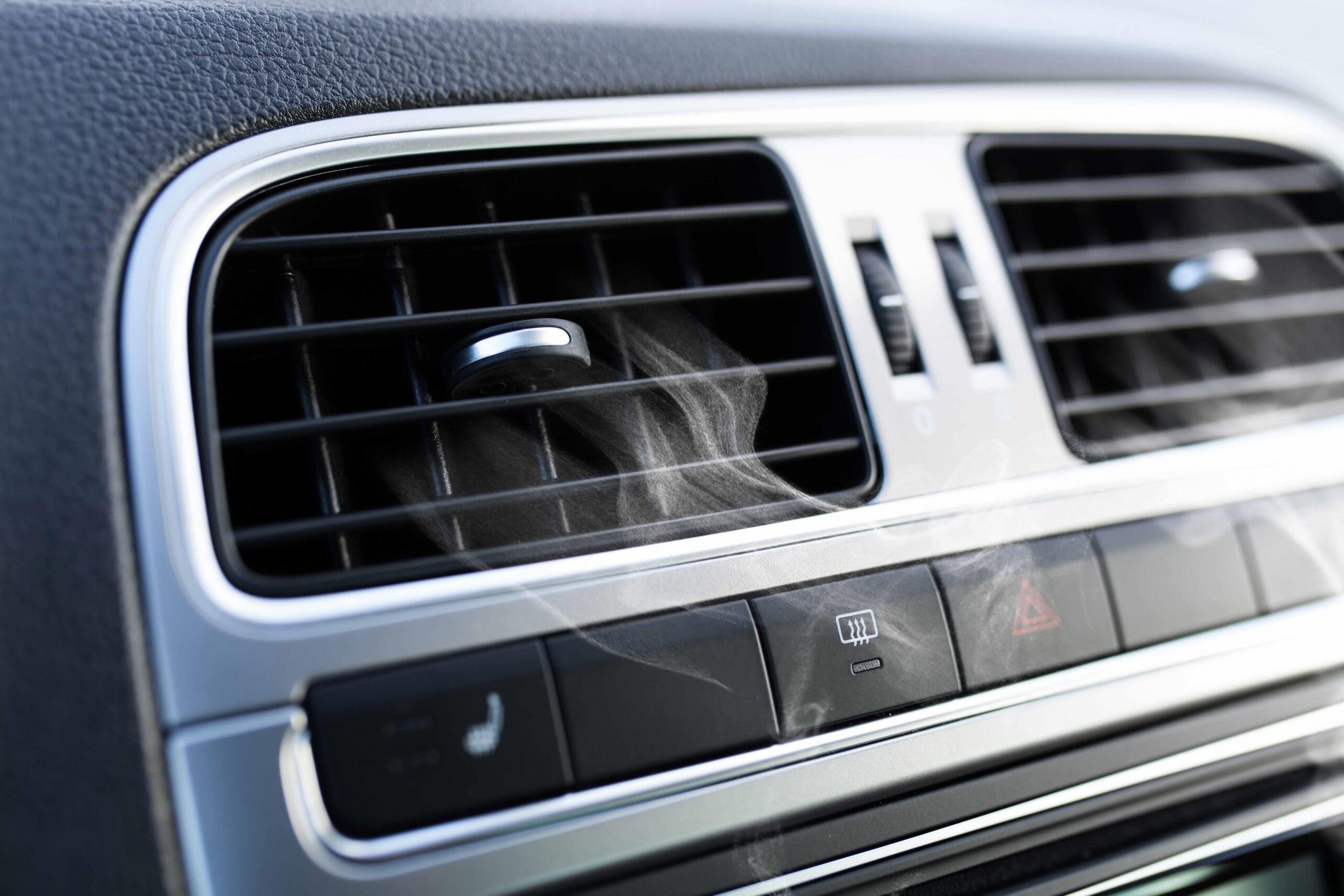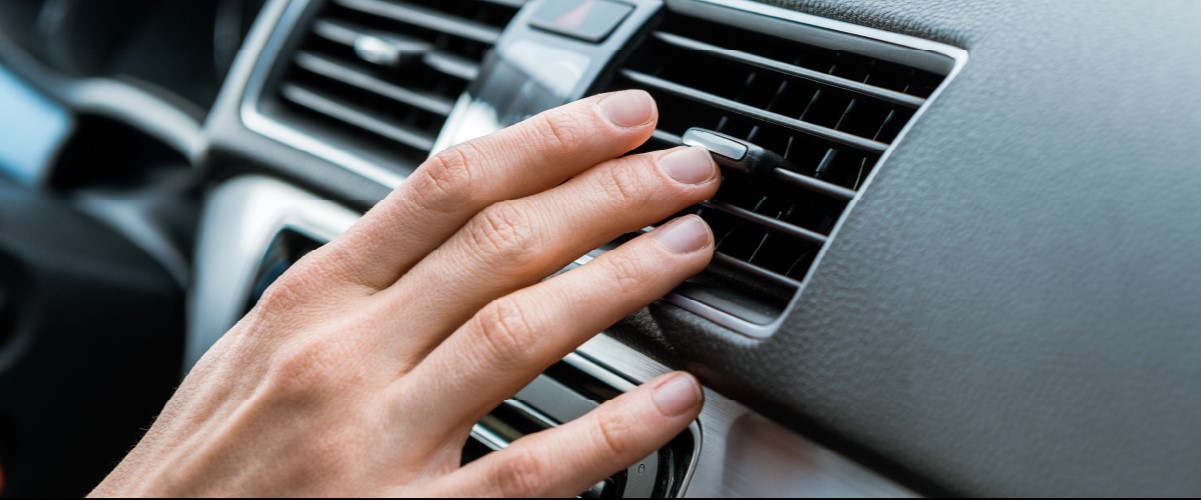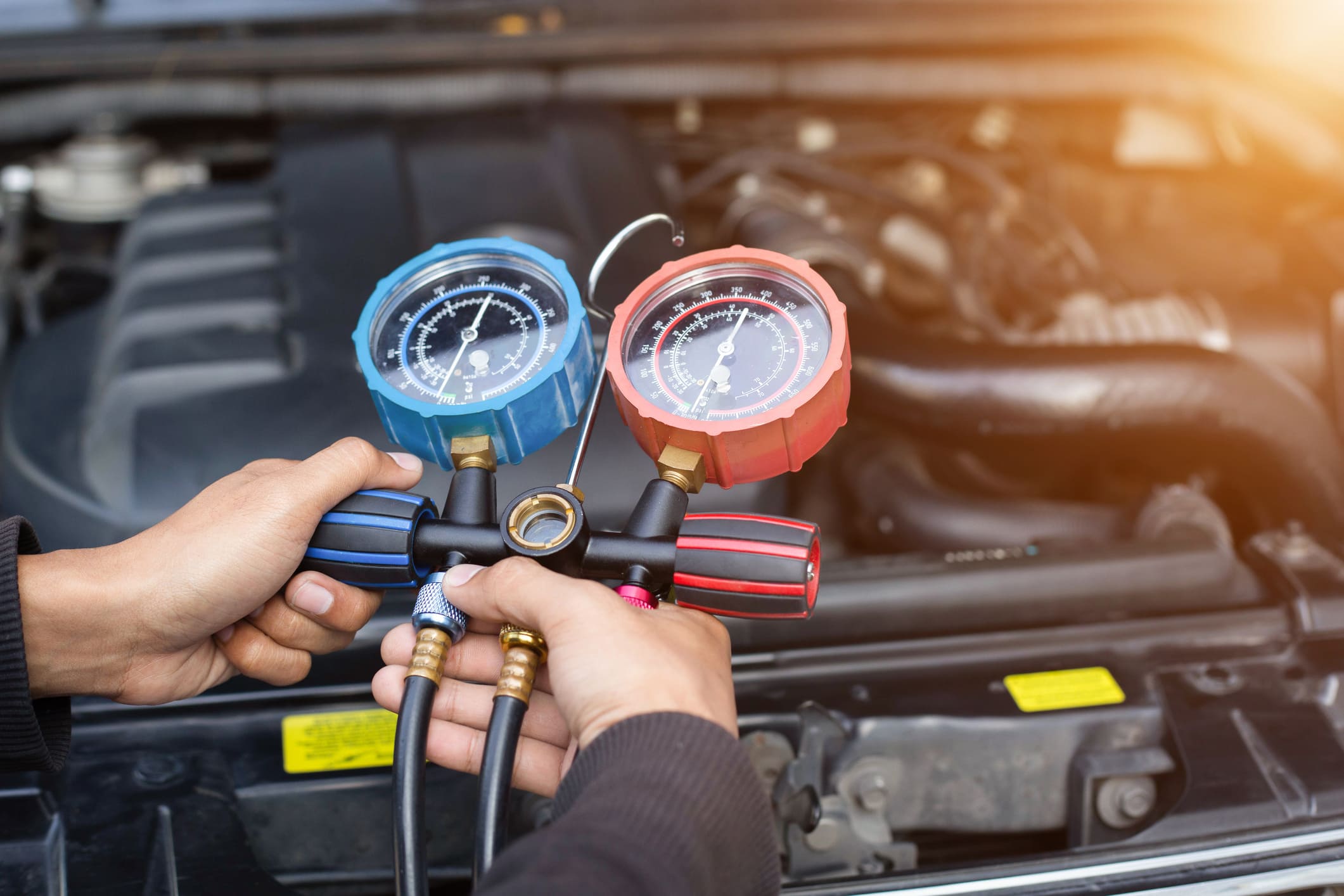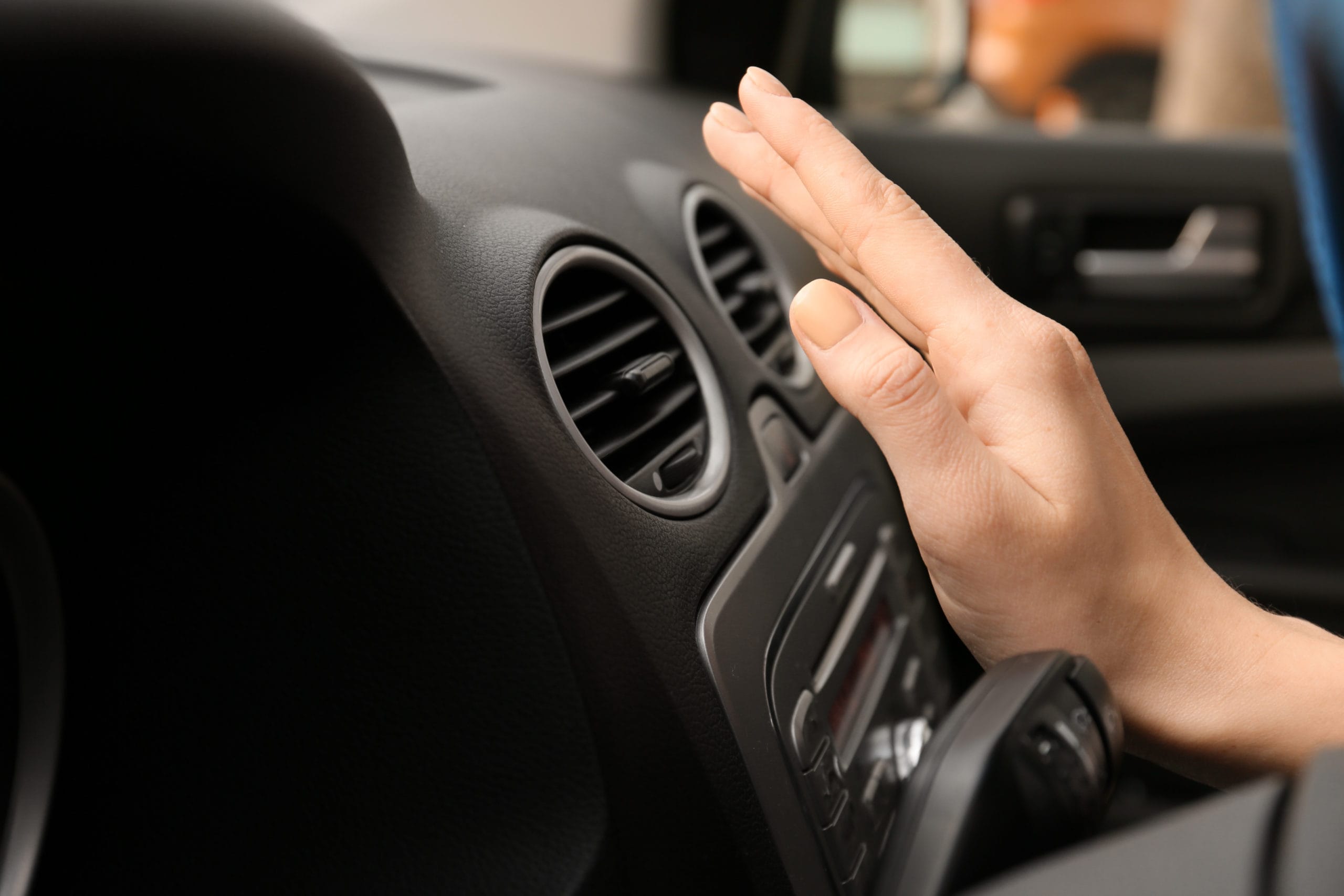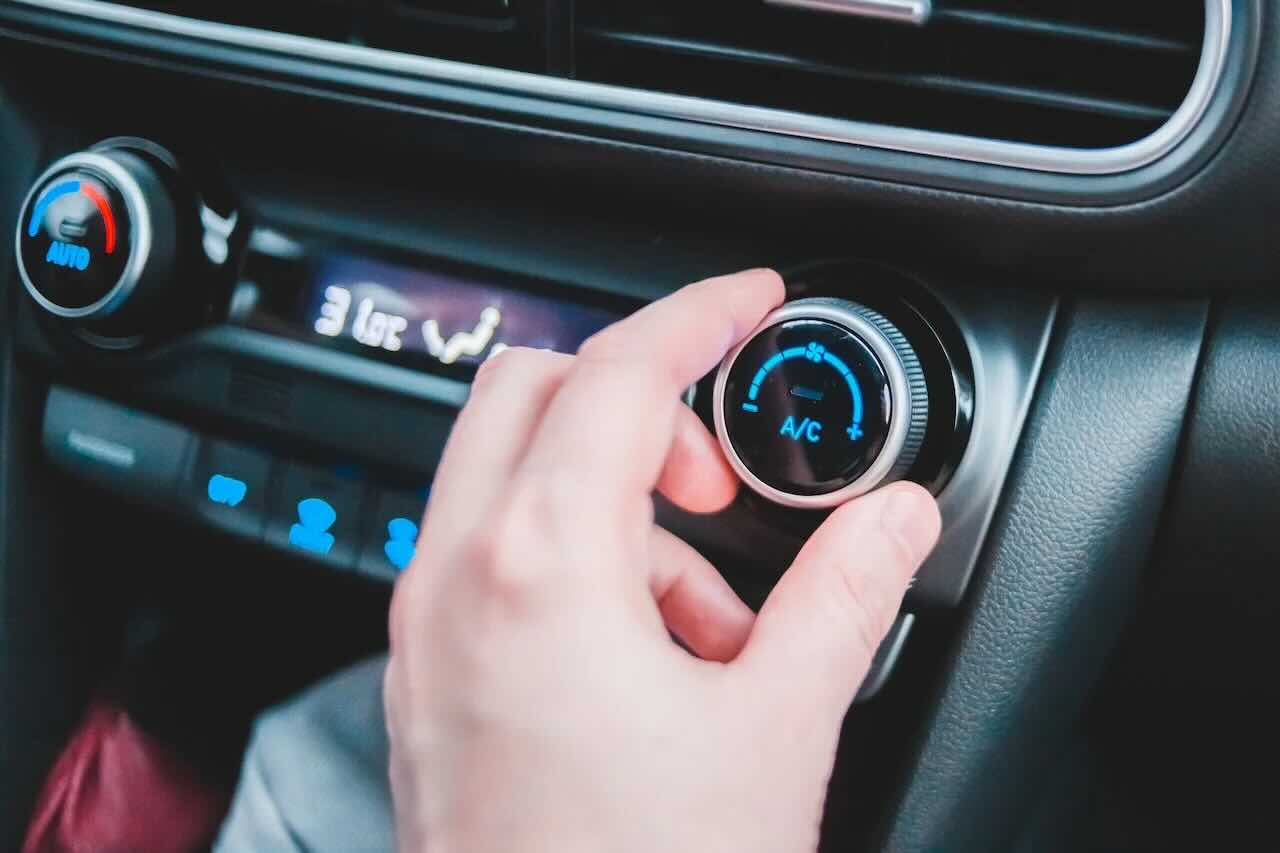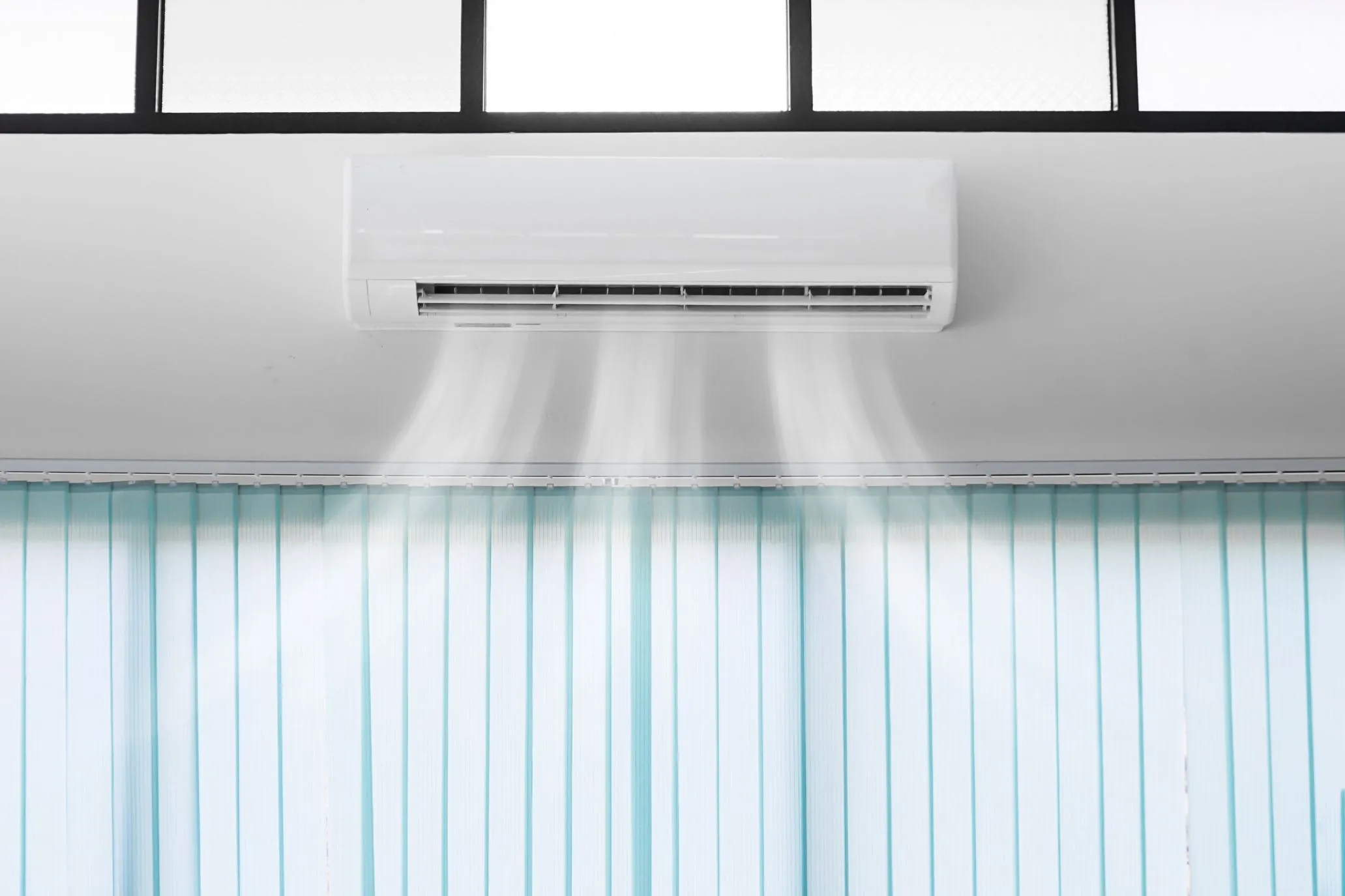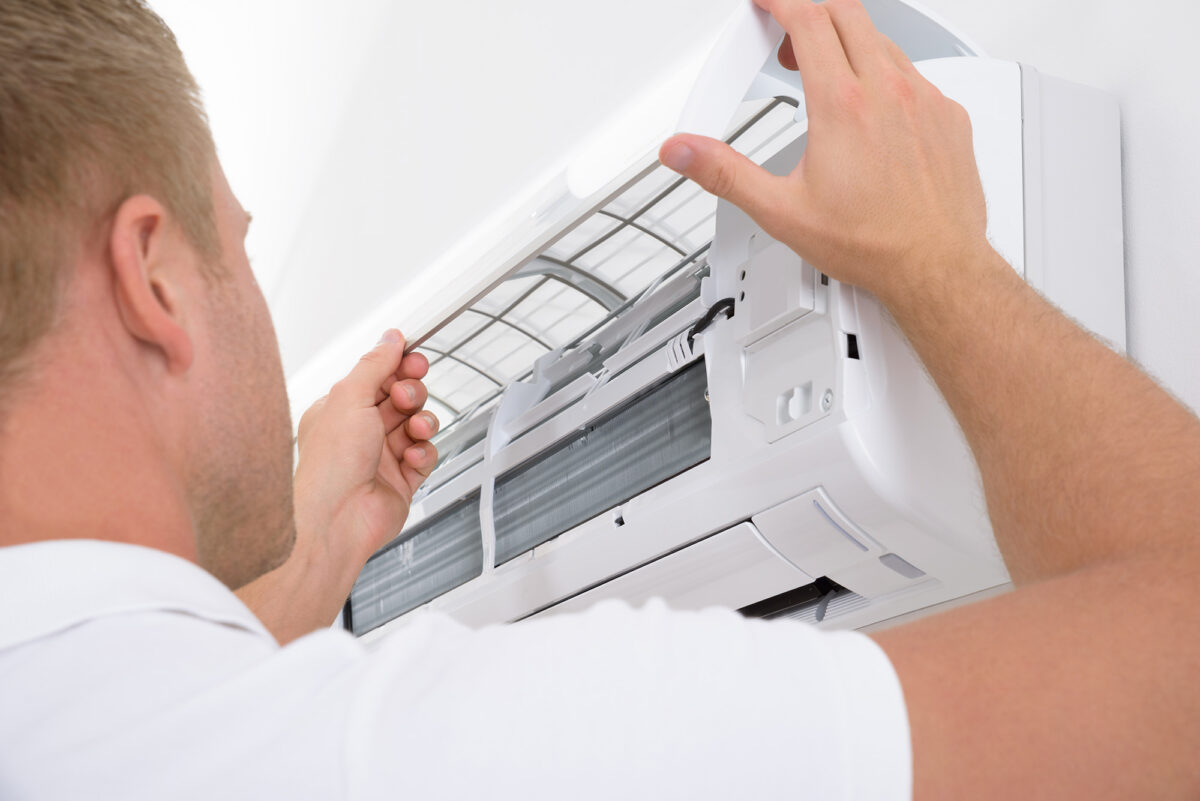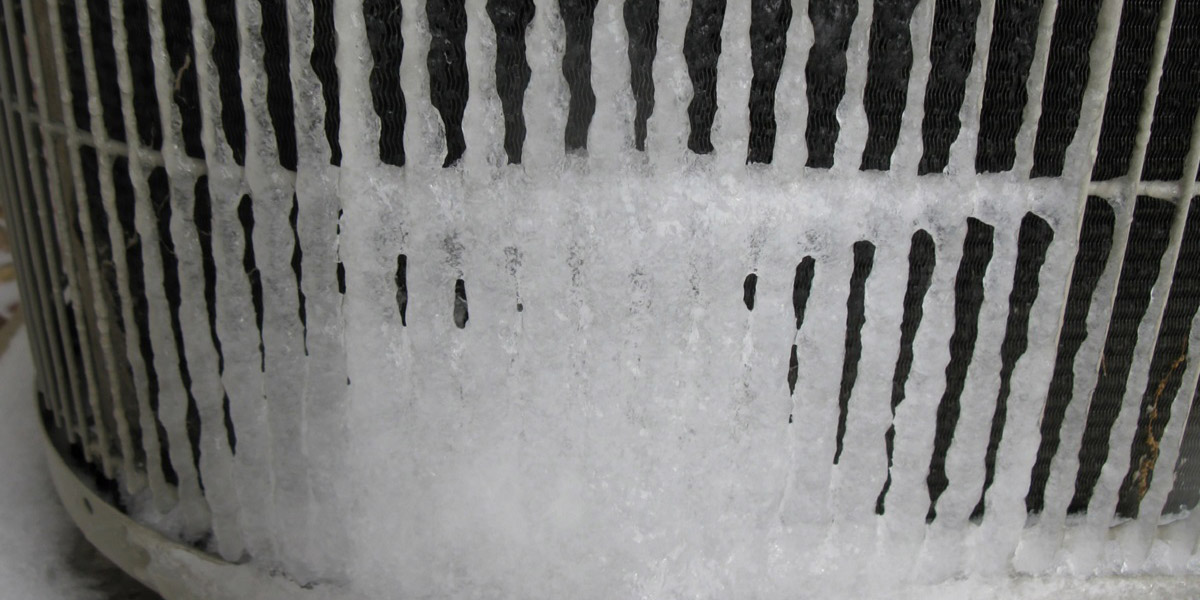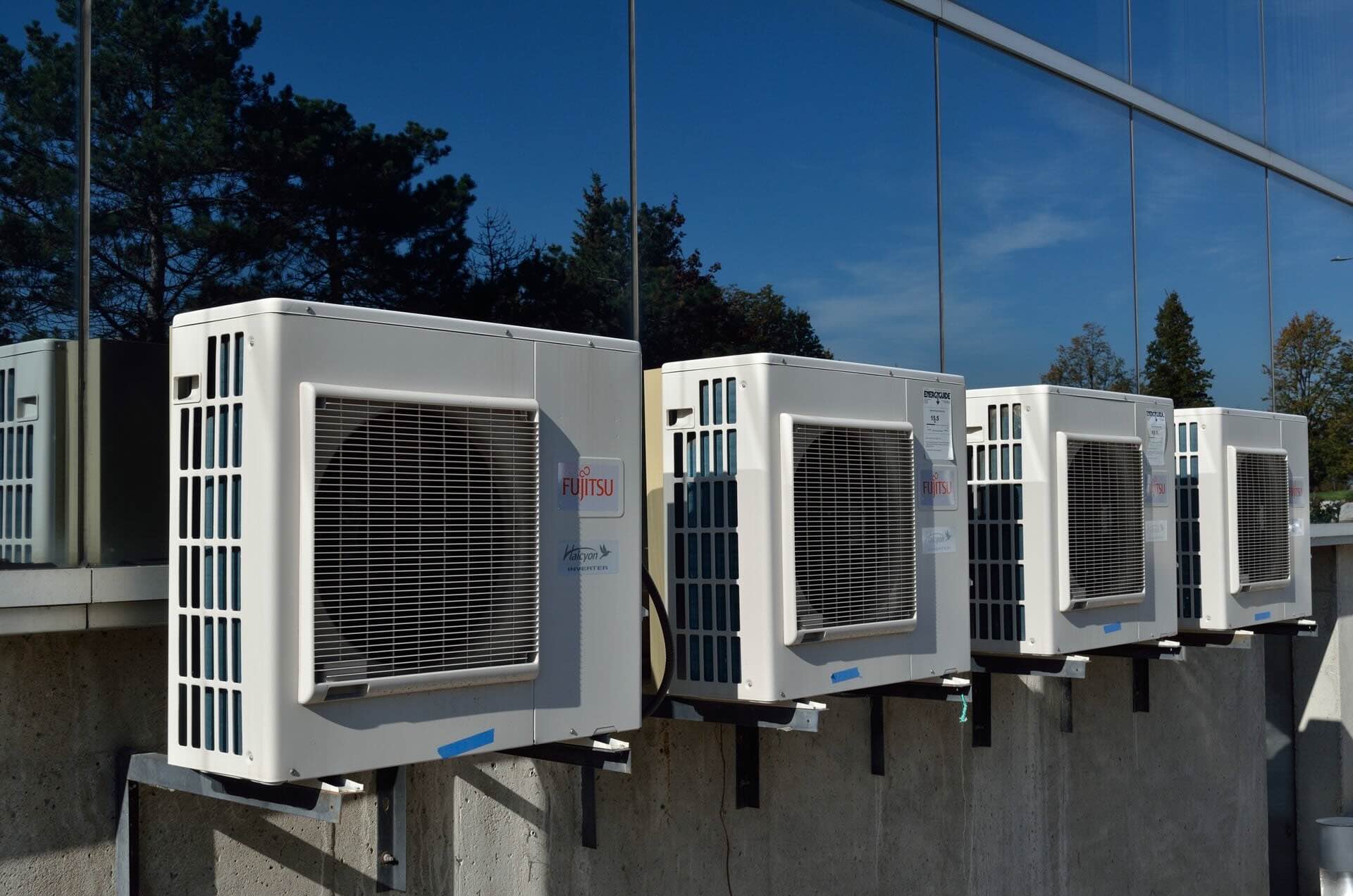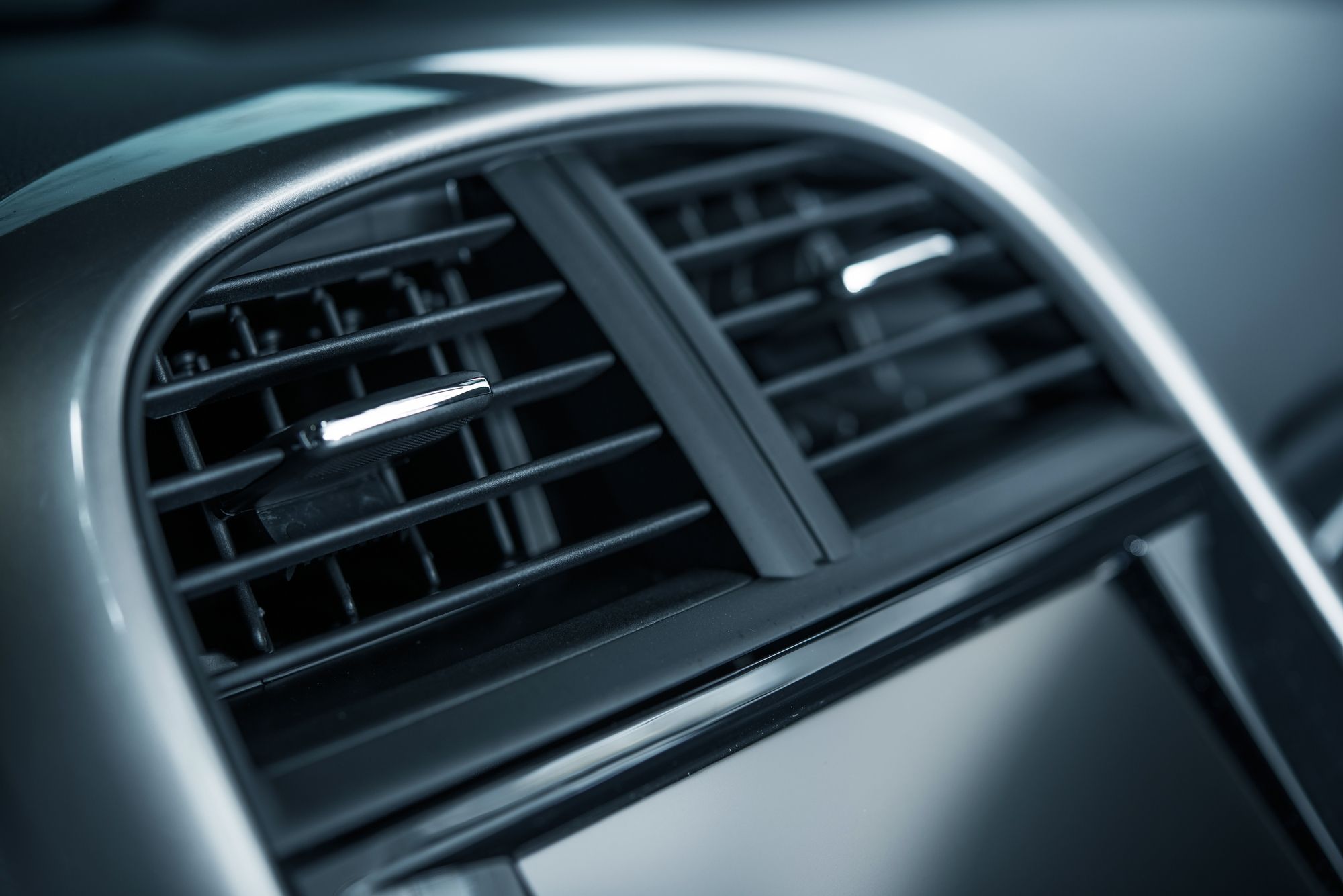Home>Home Maintenance>Why Is My Car Shaking When The Air Conditioner Is On
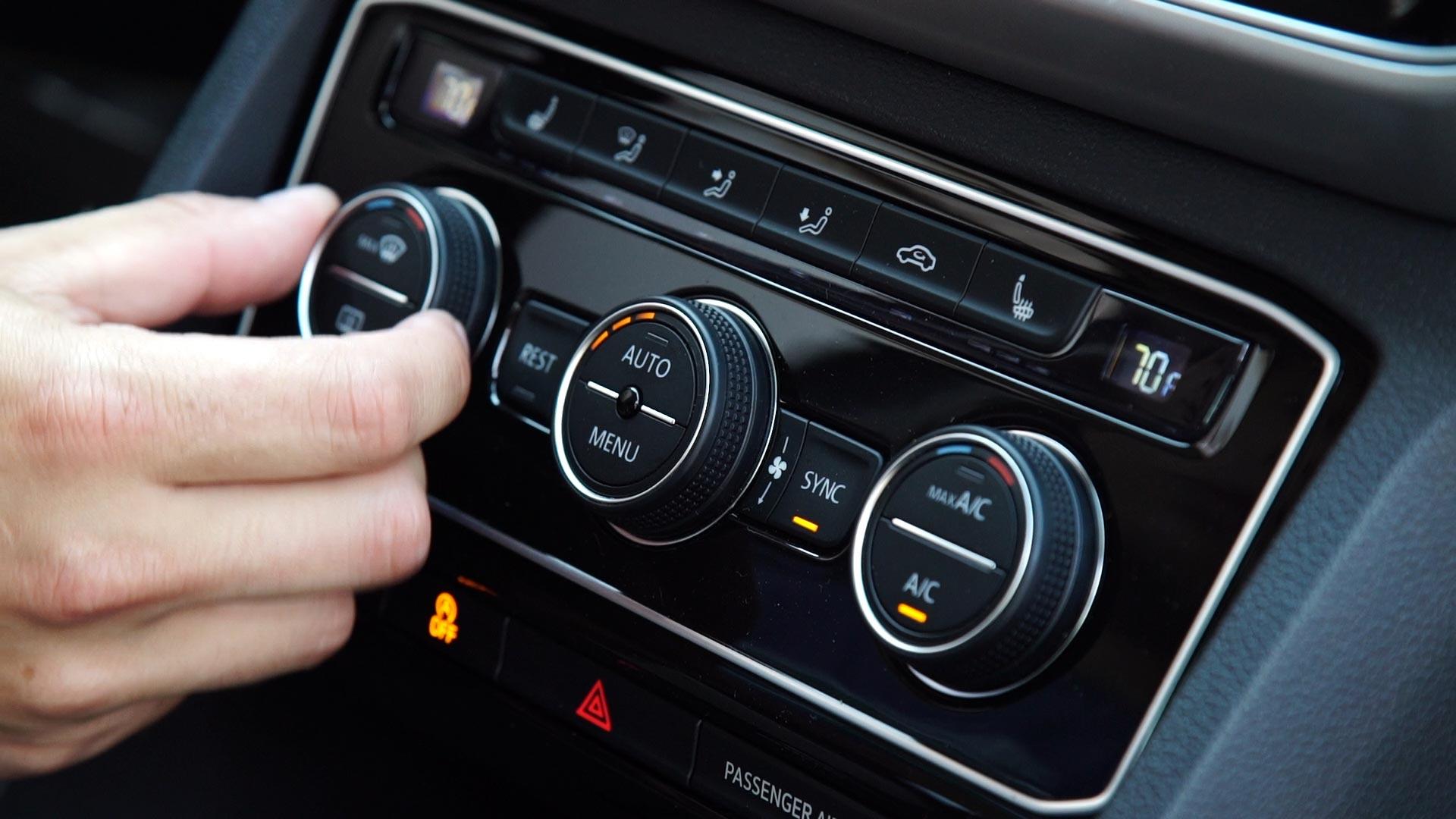

Home Maintenance
Why Is My Car Shaking When The Air Conditioner Is On
Modified: March 7, 2024
Experiencing car shaking? Learn how to fix it and avoid costly repairs with our expert home maintenance tips.
(Many of the links in this article redirect to a specific reviewed product. Your purchase of these products through affiliate links helps to generate commission for Storables.com, at no extra cost. Learn more)
Introduction
When the warm weather hits, there’s nothing more refreshing than turning on the air conditioner in your car. However, if you’ve noticed that your car starts to shake when the air conditioner is on, it can be quite concerning. Not only does it affect the comfort of your driving experience, but it may also be an indication of an underlying mechanical issue.
Car shaking can be caused by various factors, and the air conditioner can sometimes exacerbate the problem. Understanding the potential reasons for this problem and how to address it is crucial to keep your car in optimal condition and ensure your safety on the road.
In this article, we will explore the common causes of car shaking, the impact of the air conditioner on a car’s performance, the possible reasons for shaking when the air conditioner is on, how to diagnose the issue, steps to fix the shaking problem, and precautions to avoid future issues. By the end, you’ll have a better understanding of what may be causing your car to shake and how to resolve it.
Key Takeaways:
- Keep your car in top shape by addressing shaking issues when the air conditioner is on. Look out for engine misfires, AC compressor problems, and dirty air filters to ensure a smooth driving experience.
- Prevent future car shaking by maintaining regular maintenance, monitoring tire health, and using quality fuel. Smooth driving and addressing issues promptly can keep your car running smoothly.
Read more: Why Does My Car Shake When I Turn On The AC
Common Causes of Car Shaking
Car shaking can be attributed to a variety of factors, both related to the engine and other components of the vehicle. Here are some common causes of car shaking:
- Imbalanced or Damaged Tires: One of the primary culprits of car shaking is imbalanced or damaged tires. If the tires are out of balance, it can lead to vibrations that are felt throughout the car, especially at higher speeds. Similarly, if the tires are worn or damaged, it can cause uneven tread wear and result in shaking.
- Wheel Alignment Issues: When the wheels of your car are not properly aligned, it can cause the vehicle to pull to one side and result in shaking. This is often noticeable when driving in a straight line, as the car may feel like it’s constantly veering off course.
- Brake Problems: Faulty brakes can also contribute to car shaking. Worn-out brake pads or rotors can cause vibrations when the brakes are applied, leading to shaking sensations throughout the car.
- Engine Misfire: An engine misfire occurs when one or more cylinders in the engine fail to ignite properly. This can cause the entire car to shake, especially under acceleration. The shaking may be accompanied by other symptoms, such as a loss of power or a check engine light.
- Suspension Issues: Problems with the suspension system, such as worn-out shocks or struts, can result in a rough and shaky ride. The suspension is responsible for absorbing the impact from bumps and uneven road surfaces, so when it’s compromised, the car may shake excessively.
These are just a few of the common causes of car shaking. It’s important to note that the air conditioner can sometimes amplify the shaking due to the additional load it puts on the engine. Understanding how the air conditioner affects your car’s performance will help you pinpoint the root cause of the shaking when the air conditioner is turned on. Let’s explore this further in the next section.
Impact of Air Conditioner on Car’s Performance
The air conditioner plays a significant role in keeping the car’s interior cool and comfortable, particularly during hot summer days. However, it also places an additional load on the engine, which can affect the car’s overall performance. Here are some ways in which the air conditioner can impact your car:
- Increased Engine Load: When the air conditioner is turned on, it requires power from the engine to operate. This extra load can place additional strain on the engine, especially during periods of acceleration or when driving at high speeds. The increased load can result in a reduction in overall engine performance.
- Decreased Fuel Efficiency: The additional load on the engine caused by the air conditioner can lead to decreased fuel efficiency. The engine has to work harder to power the air conditioning system, resulting in increased fuel consumption. This means you may need to refuel more frequently, especially if you often rely on the air conditioner.
- Electrical Load: The air conditioner relies on the car’s electrical system to function. This includes the compressor, blower motor, and various sensors. The increased electrical load can put strain on the battery and alternator, potentially leading to issues with these components over time.
- Heat Dissipation: The air conditioner also plays a role in dissipating heat from the engine. As it cools the air inside the car, it also helps remove heat from the engine compartment. If the air conditioner is not functioning optimally, it may impact the engine cooling system, resulting in overheating and potential damage to the engine.
Considering these factors, it’s important to understand that the air conditioner can contribute to car shaking when there are existing issues with the vehicle’s engine or other components. Identifying the possible reasons for shaking when the air conditioner is on is crucial for effective troubleshooting and fixing the problem. Let’s explore some potential causes in the next section.
Possible Reasons for Shaking when the Air Conditioner Is On
Experiencing car shaking specifically when the air conditioner is turned on can be a result of several factors. Here are some possible reasons for this issue:
- Engine Misfire: One common cause of shaking when the air conditioner is on is an engine misfire. As mentioned earlier, an engine misfire occurs when one or more cylinders fail to ignite properly. The additional load from the air conditioner can exacerbate the misfire, causing the car to shake.
- AC Compressor Issues: The air conditioning compressor is responsible for pressurizing and circulating refrigerant throughout the system. If the compressor is faulty or damaged, it can cause excessive vibrations and shaking when the air conditioner is in use. This is often accompanied by strange noises coming from the compressor area.
- Dirty or Clogged Air Filters: When the air filters in your car are dirty or clogged, it can restrict airflow to the engine, affecting its performance. This reduced airflow can lead to engine shaking, especially when the air conditioner is turned on and the engine is under additional load.
- Engine Mounts: Engine mounts are designed to absorb vibrations and ensure the engine remains stable. Over time, engine mounts can wear out or become loose, leading to increased engine vibrations. The added load from the air conditioner can magnify these vibrations, causing the car to shake.
- Low Refrigerant Levels: Insufficient refrigerant levels in the air conditioning system can result in the compressor working harder to cool the air, leading to increased engine load and potential shaking. Low refrigerant levels may indicate a leak in the system that requires professional inspection and repair.
These are just a few potential reasons for car shaking when the air conditioner is turned on. It’s essential to diagnose the issue accurately to apply the appropriate fixes and prevent any further damage to your vehicle. In the next section, we will discuss how to diagnose the problem effectively.
If your car shakes when the air conditioner is on, it could be due to a problem with the engine mounts or the compressor. Have a mechanic check these components to ensure they are functioning properly.
How to Diagnose the Issue
Diagnosing the specific cause of car shaking when the air conditioner is on requires a systematic approach. Here are some steps to help you diagnose the issue effectively:
- Observe the Shaking: Pay close attention to when the car shakes and under what conditions. Note if the shaking occurs only when the air conditioner is turned on or if it happens at all times. This information will help narrow down the potential causes.
- Check for Engine Misfire: An engine misfire can be diagnosed using an onboard diagnostic (OBD) scanner. This tool allows you to retrieve trouble codes stored in the car’s computer system, which can indicate which cylinders are misfiring. If you notice specific misfire codes, it may be contributing to the shaking issue.
- Inspect the AC Compressor: Visually inspect the AC compressor for any signs of damage or unusual noise. If you notice leaks, cracks, or grinding sounds coming from the compressor, it may be the cause of the shaking. Consider seeking professional help to further diagnose and repair compressor issues.
- Check Air Filters: Inspect and replace dirty or clogged air filters, both in the engine compartment and the cabin air filter. Restricted airflow can impact engine performance and potentially lead to shaking when the air conditioner is on.
- Inspect Engine Mounts: Inspect the engine mounts for wear, damage, or looseness. Shaking can occur if the mounts are compromised and no longer effectively dampen engine vibrations. If necessary, consult a mechanic to assess and replace faulty engine mounts.
- Check Refrigerant Levels: If you suspect low refrigerant levels, it’s best to have the air conditioning system inspected by a professional. They can check for leaks, recharge the system, and ensure it’s functioning optimally.
This diagnostic process will help you identify potential causes of the car shaking when the air conditioner is on. Depending on your findings, you can take steps to fix the issue as outlined in the next section.
Steps to Fix Car Shaking with the Air Conditioner On
Once you have identified the root cause of the car shaking when the air conditioner is turned on, you can take appropriate steps to address the issue. Here are some potential fixes:
- Address Engine Misfire: If the shaking is due to an engine misfire, the cause may be faulty spark plugs, ignition coils, or fuel injectors. Consider replacing these components and performing a tune-up to improve engine performance and eliminate the misfire.
- Repair or Replace AC Compressor: If the AC compressor is damaged or faulty, it may need to be repaired or replaced. Consult a mechanic who specializes in air conditioning systems to diagnose the problem accurately and perform the necessary repairs.
- Clean or Replace Air Filters: If the air filters in your car are dirty or clogged, clean or replace them to ensure proper airflow to the engine. This can improve engine performance and reduce shaking caused by restricted airflow.
- Replace Engine Mounts: If the engine mounts are worn or damaged, they should be replaced to restore engine stability and reduce vibrations. Consult a professional mechanic who can inspect and replace the engine mounts as necessary.
- Recharge Air Conditioning System: If low refrigerant levels are the cause of the shaking, have a professional inspect the system for leaks and recharge it to the proper levels. This will ensure proper cooling and reduce strain on the engine.
It’s important to note that attempting these fixes yourself may require advanced mechanical knowledge and tools. If you’re unsure or uncomfortable performing these repairs, it’s best to consult a qualified mechanic who can diagnose and fix the problem correctly.
Remember to follow any specific instructions provided by professionals or refer to the manufacturer’s guidelines for your vehicle model when conducting any repairs or replacements. Regular maintenance and inspections can help prevent future issues and keep your car running smoothly.
Precautions to Avoid Future Shaking Issues
While addressing the specific causes of car shaking when the air conditioner is on is important, taking preventive measures can help avoid future shaking issues. Here are some precautions you can take:
- Maintain Regular Maintenance: Follow the recommended maintenance schedule for your car, including oil changes, air filter replacements, and spark plug inspections. Regular maintenance helps ensure that all components are in good working condition and reduces the risk of potential issues.
- Monitor Tire Health: Keep an eye on your tire condition and ensure they are properly inflated and balanced. Regularly inspect your tires for signs of wear or damage, and replace them as needed. Imbalanced or worn-out tires can contribute to car shaking, especially when combined with the added load from the air conditioner.
- Keep Coolant Levels in Check: The cooling system in your car plays a crucial role in maintaining engine temperature. Make sure to check coolant levels regularly and top them up as needed. This helps prevent overheating and potential engine damage that can contribute to shaking.
- Use Quality Fuel: Using quality fuel can prevent engine issues and optimize performance. Fill up with fuel from reputable sources to ensure that you’re getting clean and reliable fuel for your car.
- Drive Smoothly: Avoid sudden acceleration or aggressive driving, as it can put unnecessary strain on the engine and other components. Smooth driving techniques help maintain your car’s health and reduce the chance of experiencing shaking issues.
- Address Issues Promptly: If you notice any unusual vibrations, noises, or performance issues in your car, address them promptly. Ignoring or delaying repairs can lead to more significant problems down the line and potentially contribute to shaking when the air conditioner is on.
By following these precautions and practicing regular maintenance, you can reduce the risk of experiencing car shaking in the future. However, if shaking issues persist or worsen, it’s essential to have your car inspected by a qualified mechanic to identify any underlying mechanical problems.
Remember, early detection and prompt resolution of issues can prevent further damage, improve your driving experience, and ensure your safety on the road.
Conclusion
Experiencing car shaking when the air conditioner is turned on can be a worrisome issue. However, by understanding the common causes, diagnosing the problem accurately, and taking the appropriate steps to fix it, you can restore your car’s smooth performance and enjoy a comfortable driving experience.
In this article, we explored the common causes of car shaking and discussed the impact of the air conditioner on a car’s performance. We also delved into the possible reasons behind car shaking specifically when the air conditioner is on and provided guidance on how to diagnose the issue effectively. Additionally, we outlined steps to address the problem depending on the identified cause and shared precautions to prevent future shaking issues.
Remember, if you’re unsure about conducting repairs yourself, it’s always best to consult a qualified mechanic who can provide expert advice and assistance. Regular maintenance, proper tire care, and attentive driving habits can go a long way in keeping your car in good shape and minimizing the chances of experiencing shaking issues.
By staying proactive and vigilant, you can maintain a smooth and enjoyable driving experience while keeping your car in optimal condition.
So, the next time you turn on your air conditioner, you can do so with confidence, knowing that your car will stay free from any unsettling vibrations or shaking.
Frequently Asked Questions about Why Is My Car Shaking When The Air Conditioner Is On
Was this page helpful?
At Storables.com, we guarantee accurate and reliable information. Our content, validated by Expert Board Contributors, is crafted following stringent Editorial Policies. We're committed to providing you with well-researched, expert-backed insights for all your informational needs.
